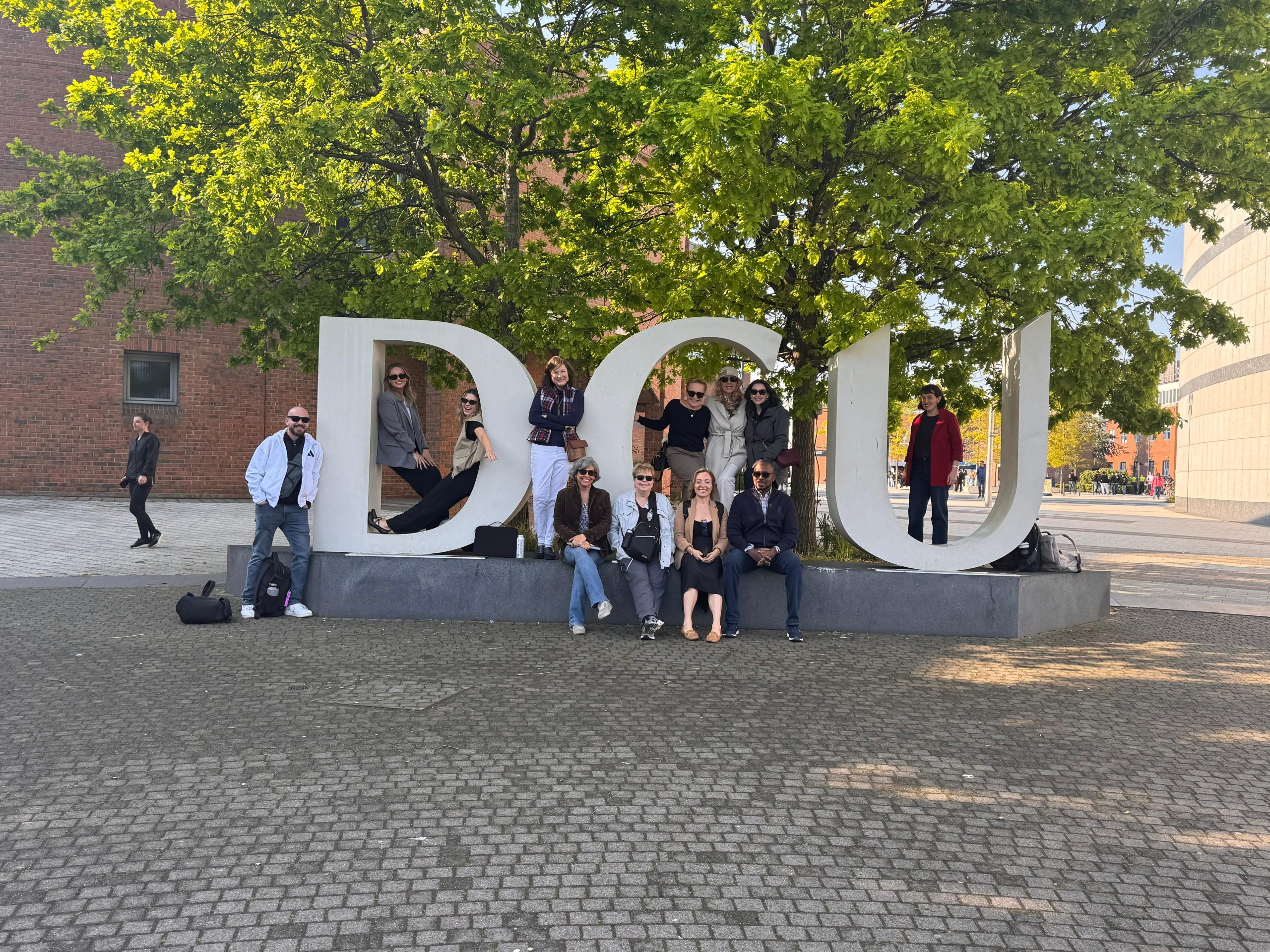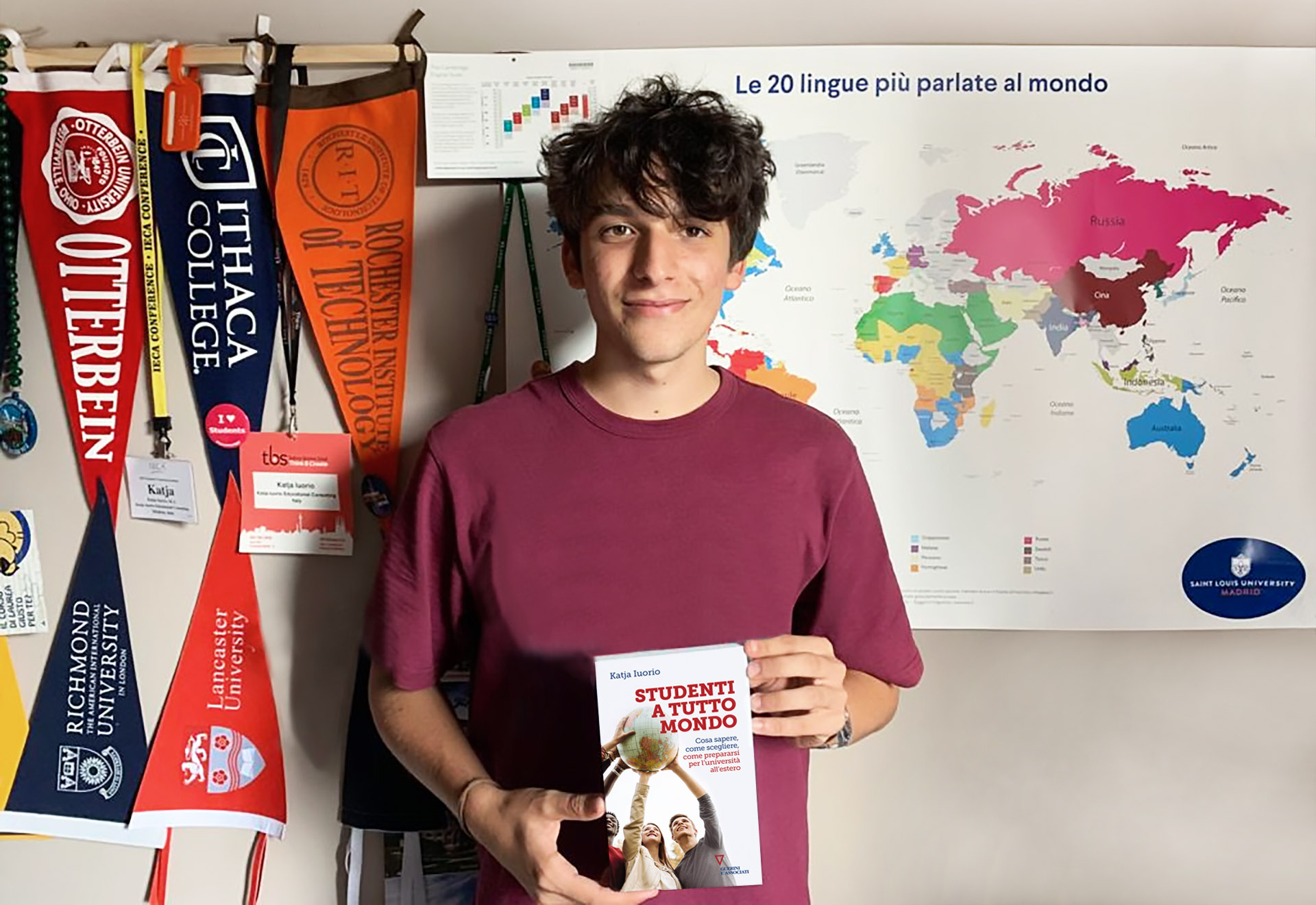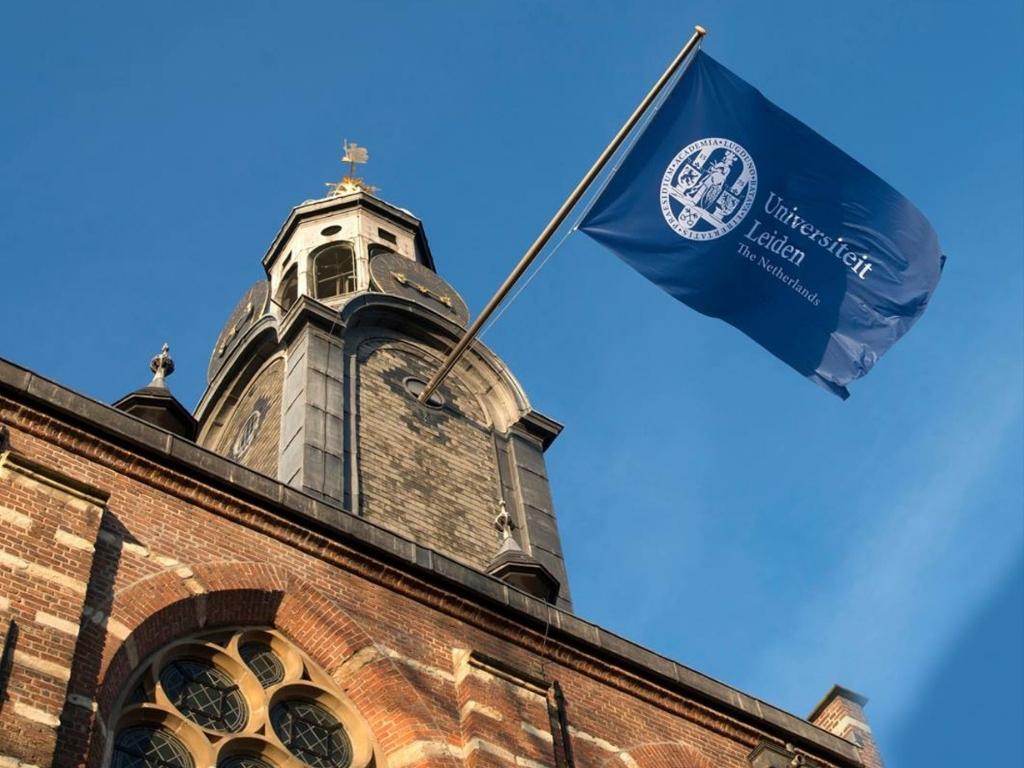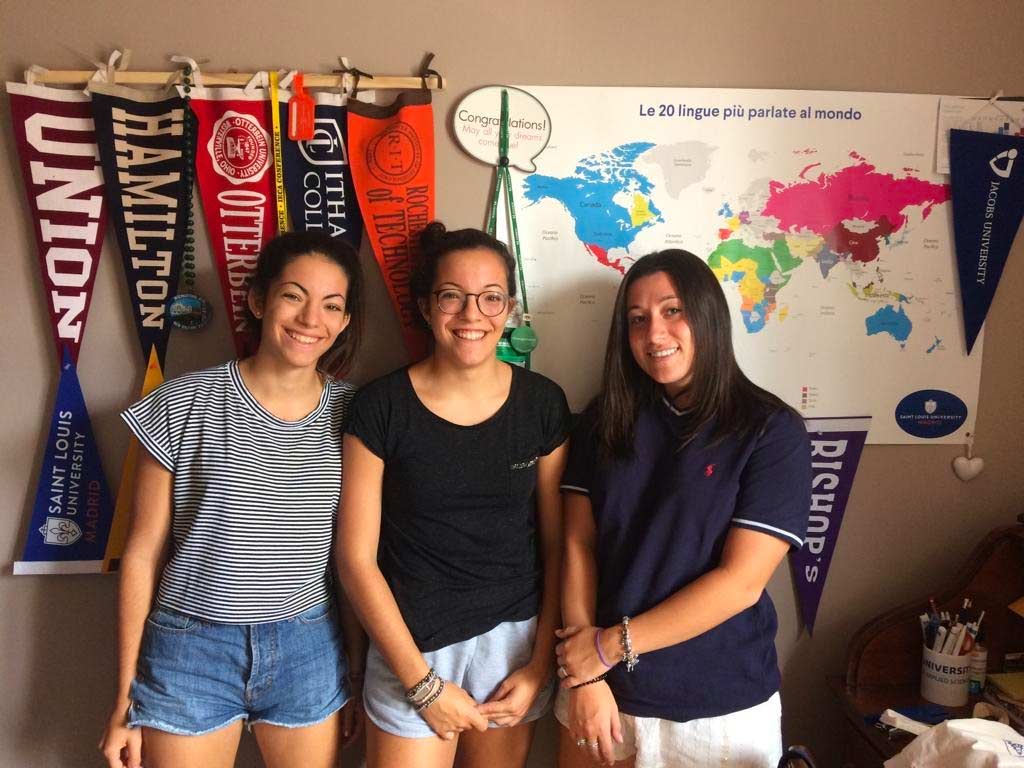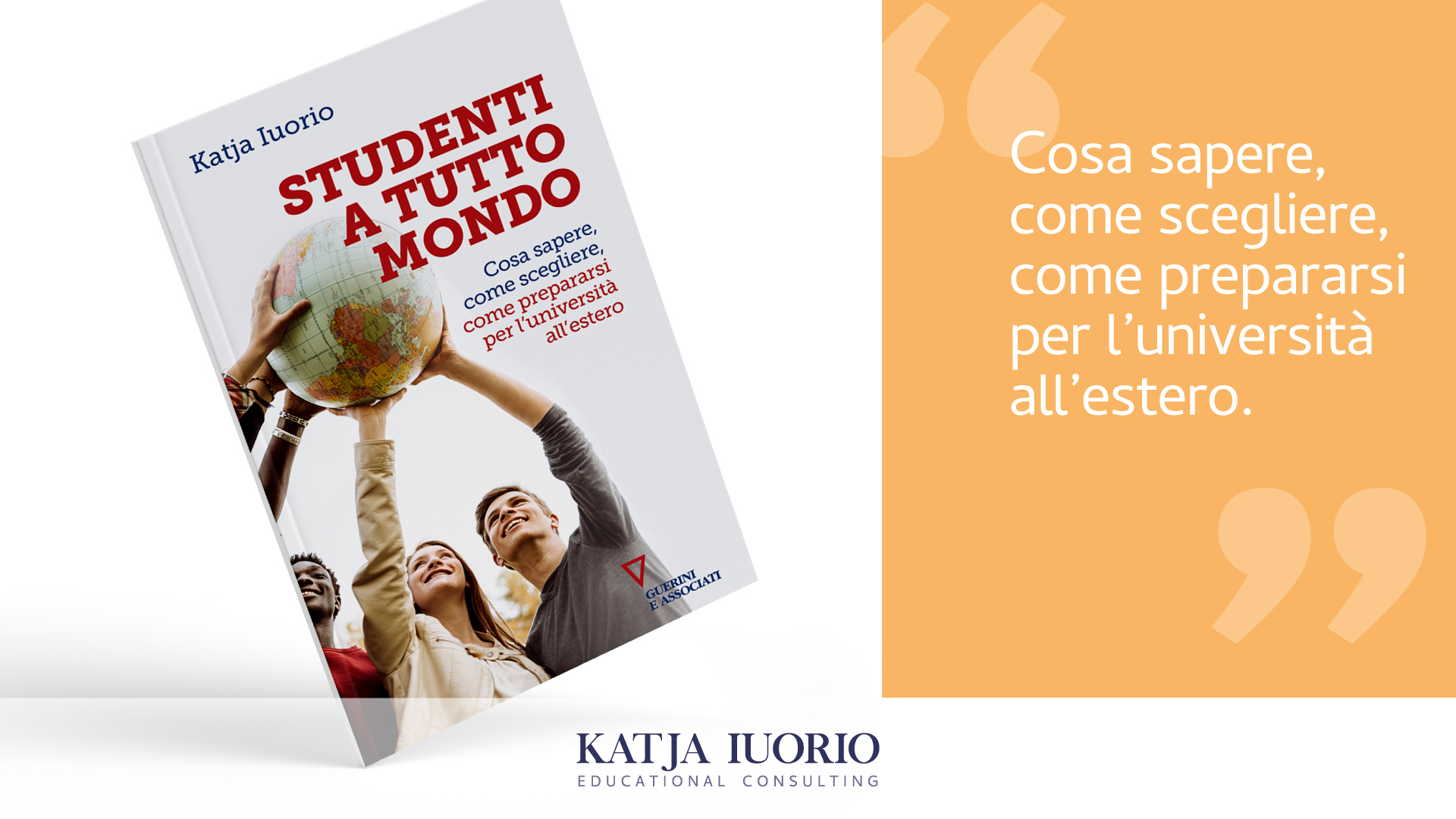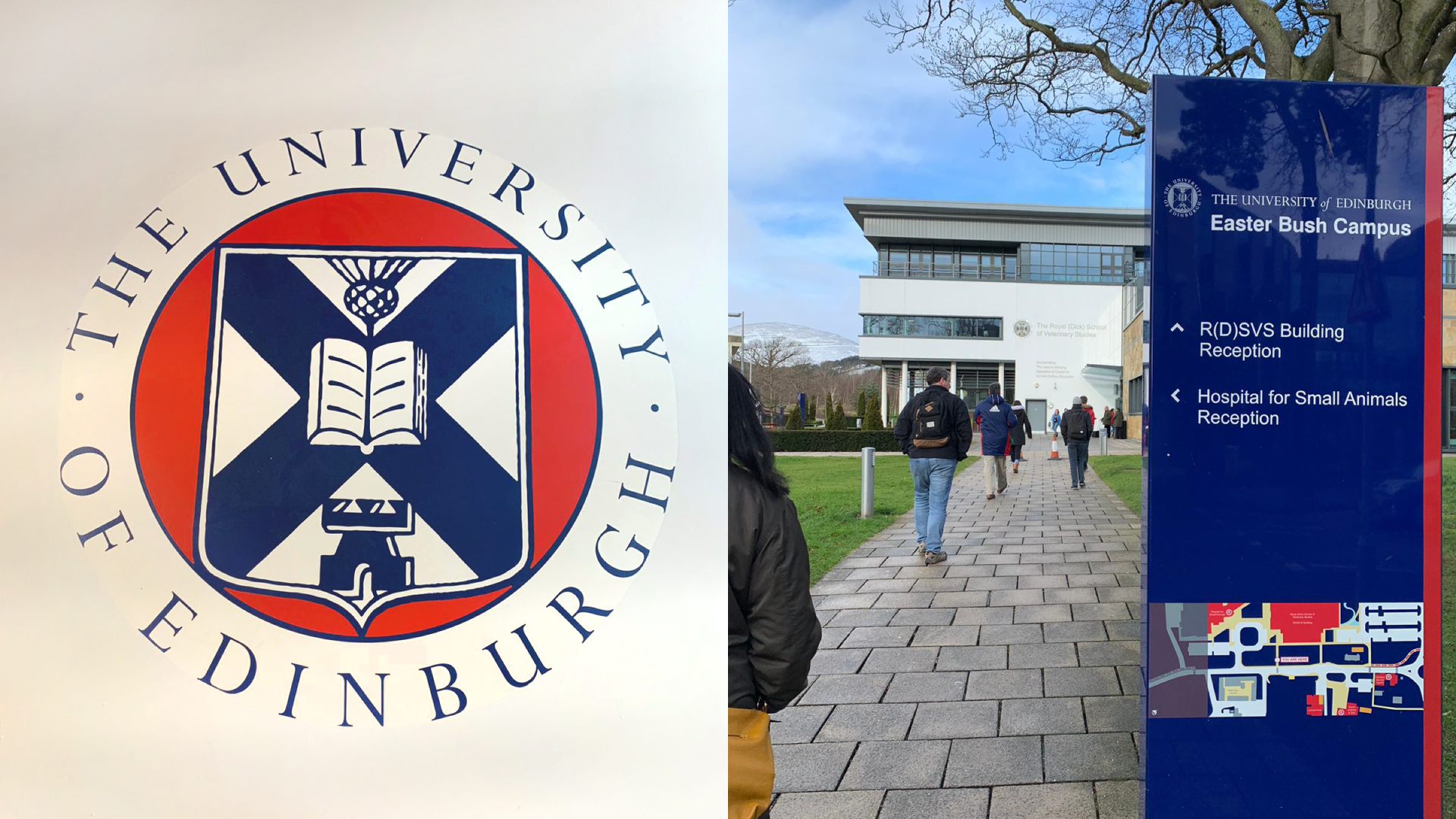Financial guide to study abroad: the 7 basic steps
Nel mio ruolo di educational counselor, ho spesso osservato le sfide che genitori e studenti devono affrontare nella gestione delle risorse economiche per questo importante passo: un’esperienza di studio all’estero.
Visto che si parla di impegno finanziario, è importante ricordare che studiare all’estero non significa necessariamente spendere cifre elevate e quindi rappresentare un’opzione irraggiungibile per la maggioranza.
Gran parte della formazione in Europa è pubblica e i costi delle tasse universitarie sono molto contenuti. Oggi, infatti, ci sono molte realtà che rendono possibile un percorso di studi all’estero senza costi proibitivi. Ad esempio, in Olanda, l’istruzione pubblica è di altissima qualità e con una forte dimensione internazionale. Oppure, Paesi come la Repubblica Ceca, che tra breve visiterò andando a Praga, offrono sempre più programmi di alto livello, così come Germania e alcuni Paesi del Nord Europa. Per questo, è fondamentale conoscere bene l’offerta formativa e individuare quella più adatta alle esigenze di ogni studente e famiglia. Avere un counselor di fiducia può fare la differenza, aiutando a orientarsi tra le numerose opportunità disponibili oggi.
Una pianificazione finanziaria accurata è comunque essenziale per vivere un’esperienza di studio all’estero in modo sereno. Per supportare le famiglie in questo percorso, ho creato una guida con sette aspetti chiave da considerare. Questi aspetti sono di primaria importanza per organizzare al meglio questa opportunità, che rappresenta non solo un arricchimento accademico, ma anche un’occasione di crescita personale e culturale per molti giovani.
Preparazione e consapevolezza: la chiave per una proficua esperienza di studio all’estero
Chiaramente una pianificazione finanziaria sarà sempre necessaria quindi Ecco quindi i punti fondamentali su cui desidero concentrarmi, frutto della mia esperienza diretta, per assicurare un percorso gratificante e privo di imprevisti a tanti ragazzi e le loro famiglie.
1. L’importanza della pianificazione finanziaria
Calcolare accuratamente il budget complessivo è il primo passo essenziale. Studiare in un altro Paese coinvolge diversi aspetti finanziari che devono essere analizzati con attenzione:
- Tasse universitarie: diverse regioni o istituti possono avere costi molto variabili. È fondamentale investigare tutte le tasse e i costi dei materiali didattici. In alcuni corsi, soprattutto tecnici o artistici, le spese per l’attrezzatura possono essere significative.
- Alloggio, vitto e trasporti: ogni Paese presenta un costo della vita diverso. Valutare l’affitto e le modalità di trasporto è imprescindibile per un quadro realistico del budget necessario.
- Assicurazione sanitaria e spese amministrative: non sottovalutate visti, permessi di soggiorno e altre “spese accessorie” che possono influire pesantemente sul bilancio familiare.
Nella mia esperienza, molti studenti e famiglie trascurano le “spese accessorie”, poi diventate fonti di difficoltà. Pianificare in anticipo e informarsi su possibili promozioni (ad esempio trasporti pubblici scontati) e scegliere con attenzione la zona in cui alloggiare aiuta a ottimizzare il budget.
2. Dividere le spese per categorie
Suddividere le spese in categorie specifiche facilita la gestione e il controllo dei costi. Un metodo efficace consiste nel distinguere tra:
- Tasse e materiali di studio: oltre alle tasse di iscrizione, consiglio di anticipare i costi dei libri di testo e di eventuali attrezzature richieste.
- Alloggio e costo di vita quotidiana: considerate l’affitto, le utenze, i costi del cibo, e mettete in conto anche le spese per socializzazione e intrattenimento.
- Spostamenti e viaggi: includete i principali biglietti di viaggio e eventuali visite turistiche nella loro valutazione.
- Assicurazione o copertura sanitaria: spesso obbligatoria per studenti internazionali.
Creare un elenco esaustivo di tutte queste spese aiuta a non incappare in brutte sorprese e preservare la stabilità finanziaria, che garantisce un’esperienza di studio tranquilla e focalizzata sui obiettivi.
3. Come reperire le risorse: borse di studio e altri strumenti
Dopo la quantificazione dei costi, la domanda successiva è: come finanziare questo impegno economico? Accanto ai risparmi di famiglia, le borse di studio sono una risorsa fondamentale. Possono essere ottenute per merito, necessità economica o per programmi offerti dalle università. Consiglio di consultare i siti ufficiali degli atenei, enti governativi e fondazioni private che esplicitamente supportano progetti di studio all’estero.
Se una borsa di studio non è sufficiente o non si riesce a ottenerla, il lavoro part-time è una seconda risorsa preziosa. Nei paesi dove non e’ richiesto un visto di studio (tutta l’Europa ) si puo’ svolgere tranquillamente qualche attivita’ lavorativa senza limitazioni particolari (moltissimi studenti lo fanno) . Nei paesi dove e’ richiesto un visto di studio ci sono alcune limitazioni ; Molti Paesi permettono agli studenti internazionali di lavorare un numero limitato di ore settimanali. Una piccola attività lavorativa garantisce il denaro per spese quotidiane e offre inoltre un immersione culturale nel luogo di studio, a patto di non trascurare gli impegni accademici.
4. Consigli pratici per ridurre le spese
Le sfide finanziarie di studiare all’estero possono essere affrontate con piccoli accorgimenti quotidiani, senza alterare profondamente l’esperienza ma garantendo una gestione migliore del denaro:
- Pasti in casa: anche se gustare la gastronomia locale è invitante, mangiare fuori ogni giorno può gravare pesantemente sul budget. Pianificate una spesa settimanale e approfittate per imparare alcune ricette base.
- Condivisione dell’alloggio: dividere l’affitto e le spese genera benefici economici e promuove il contatto sociale e culturale con altri studenti.
- Trasporti pubblici: preferite autobus e metropolitane, più economici di taxi e auto private. Verificate offerte e abbonamenti scontati per studenti.
- Sconti studenteschi: musei, cinema e certi ristoranti offrono riduzioni esibendo la tessera universitaria. Questa pratica è da sfruttare per evitare esborsi eccessivi.
Adottare uno stile di vita semplice e consapevole è la chiave per gestire le risorse finanziarie senza compromettere le opportunità offerte dallo studio all’estero.
5. Gestire cambio valuta e conti locali
In caso di permanenza in un Paese con valuta differente, diventa cruciale gestire attentamente il cambio valuta. Le commissioni sui prelievi, pagamenti con carta o bonifici internazionali possono variare considerevolmente a seconda della banca. Aprire un conto locale può spesso essere vantaggioso. Alcune banche offrono conti multivaluta che permettono di evitare costose conversioni e prelevare a condizioni migliorate.
Informatevi sui documenti necessari per l’apertura (passaporto, visto studentesco, prova di residenza) e valutate la possibilità di confrontare i tassi di cambio sui principali circuiti, anche con servizi online specializzati. Restando aggiornati, si ottengono piccole grandi economie che incidono positivamente sul bilancio complessivo.
6. Buone abitudini di spesa: il ruolo del budget
Saper gestire il denaro è un’abilità che si affina con la pratica. Trasferirsi all’estero offre l’occasione perfetta per imparare a far quadrare entrate e uscite in modo responsabile. Per riuscirci conviene:
- Stilare un budget mensile: dividete le spese fisse (affitto, utenze) da quelle variabili (cibo, viaggi, divertimenti). Lasciate sempre un margine per le emergenze.
- Usare app o fogli di calcolo: numerose app gratuite permettono di registrare ogni spesa e di creare grafici di facile lettura.
- Controllare regolarmente i dati: una revisione settimanale o mensile aiuta a individuare sprechi e a correggere il tiro in tempo.
Col tempo, imparerete a riconoscere pattern di spesa e a gestire con più prontezza eventuali imprevisti, trasformando l’autonomia finanziaria in un vero e proprio strumento di crescita personale.
7. La forza del “best fit”: scegliere l’università giusta
Un secondo aspetto cruciale riguarda la scelta dell’ateneo. Non tutte le università hanno i medesimi costi, programmi di studio o opportunità di sostegno economico. Informarsi in anticipo consente di individuare la soluzione più adatta alle proprie esigenze.
Ho avuto modo di visitare diversi “admission office” presso le università, parlando direttamente con i docenti e toccando con mano i programmi più innovativi e interessanti. Questo mi ha permesso di respirare le atmosfere uniche che animano i campus e di capire quale università offrisse il “best fit” per i miei studenti.
Partecipare a open day e visite guidate aiuta a valutare l’ambiente e conoscere meglio i piani di studio. Anche il contatto diretto con l’admission office può essere proficuo, poiché ha la possibilità di fornire dettagli su borse di studio, piani di pagamento dilazionati e opportunità di lavoro dentro ai campus. Trovare il “best fit” significa optare per quell’ateneo che può rispondere perfettamente alle proprie aspirazioni e capacità economiche.
Un aiuto per intraprendere un percorso di studio all’estero e ottimizzare la pianificazione finanziaria
Come affermava Ralph Waldo Emerson, “La vita è un viaggio, non una destinazione”. Studiare in un altro Paese è un’esperienza formativa fondamentale , e una buona consapevolezza finanziaria vi aiuterà ad affrontare le sfide con maggiore tranquillità.
Invito chiunque desideri approfondire questi aspetti a contattarmi. Con la mia esperienza, posso aiutarvi a creare un percorso personalizzato che ottimizzi le risorse economiche e valorizzi ogni opportunità di crescita culturale. Non esistono strade impossibili; basta percorrerle con determinazione e consapevolezza.
Non mi resta che augurarvi buon viaggio e rimango a disposizione per rispondere a ogni vostra domanda, per supportarvi in questa straordinaria esperienza di apprendimento e crescita personale.




